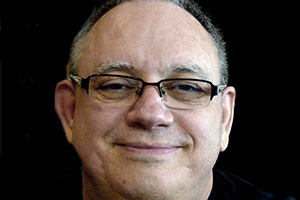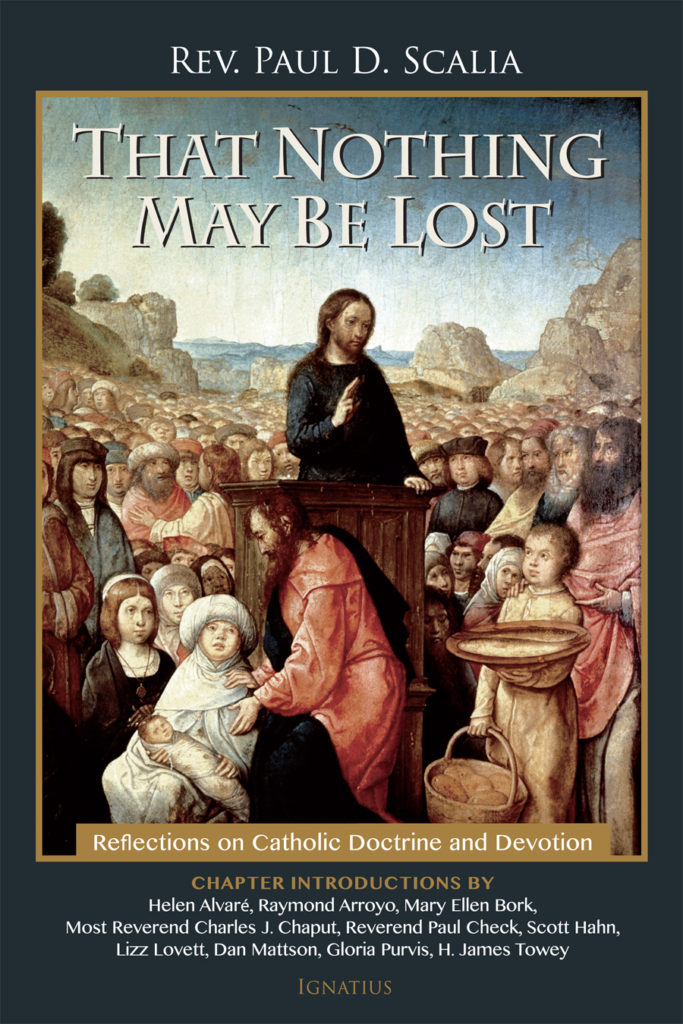
‘That Nothing May Be Lost’
Publisher: Ignatius
Length: 190 pages
Release Date: May 9, 2017
Website: Ignatius.com
Available at: Kino Library
One thing that we Catholics can always count on is paradox. Our faith is not simple and no Catholic should ever say so because of the great complexities. Fr. Paul D. Scalia’s new book, “That Nothing May Be Lost,” is filled with all those paradoxes that make our faith eminently complex and yet rich beyond imagination.
If you recognize his last name, the answer is “yes” he’s related to Anthony Scalia; he is the Supreme Court Justice’s son and his grasp on the paradoxes of the faith is as clear as any legal opinion his father ever rendered.
The whole of this book explores, in brevity and clarity, the sum total of our Catholic faith. The book is not, however, apologetic, in any way, but takes our knowledge of the faith’s various aspects and deepens them for us.
Fr. Scalia first explores Jesus of Nazareth, a man with His own set of paradoxes — human and divine? He writes about “unmiraculous miracles” like Elijah and the whisper of the Lord in the wind.
Fr. Scalia looks at the Church at its own human and divine agency, its place in time and yet its timelessness.
He revs the paradox generator up to get us all in, deep, but it’s all about the recognizing, explaining and understanding of the odd tension that comprises our faith. We have life through death and have on our minds the “Already but Not Yet” of Christmas during the Advent season. Faith and reason are always near the top of the paradox list, along with freedom and obedience and the paradox of Joseph and Fatherhood. These are the things that we need to understand to ever deepen our faith.

Fr. Scalia delves into the sacraments and asks: why was Jesus baptized? He had no need to wash away sins He could not possibly have. Maybe He just needed to wash? Just sayin’.
In the Eucharist we have the Body and Blood of Christ as actual food for our bodies, and we have the Body and Blood of Christ as a sacrifice.
Confession is one of those sacraments not loaded down with paradox, probably because sin is simply “turning from God.” We sin, we confess, we demonstrate contrition, we are absolved, and we do penance as a way of remembering to keep our faces turned toward the Lord.
Fr. Scalia covers some of the other sacraments and then moves on to Mary, the saints — which he calls the “moral masterpieces”, prayer as conversation, the life of grace and the feasts as the rhythmic pulse of the Christian life. We all feel liturgical time move from Advent to Lent and back again.
The importance of understanding these paradoxes, which make up our faith, cannot be understated. The whole of the Reformation, in some respects, was about the Church and the paradoxes and the way it handled them. We can seek after unity with a clear view of what these paradoxes mean, drawing Protestants into conversation and deepening the faith.
Fr. Scalia is such a clear and competent writer and this book of his is so good, our Lay Dominican chapter might have to look at it for our ongoing formation. For the rest of Christendom, Fr. Scalia’s book is one of those that adds significantly to the understanding of theology, which, in turn, helps us keep our faces turned toward and our eyes turned upward.






